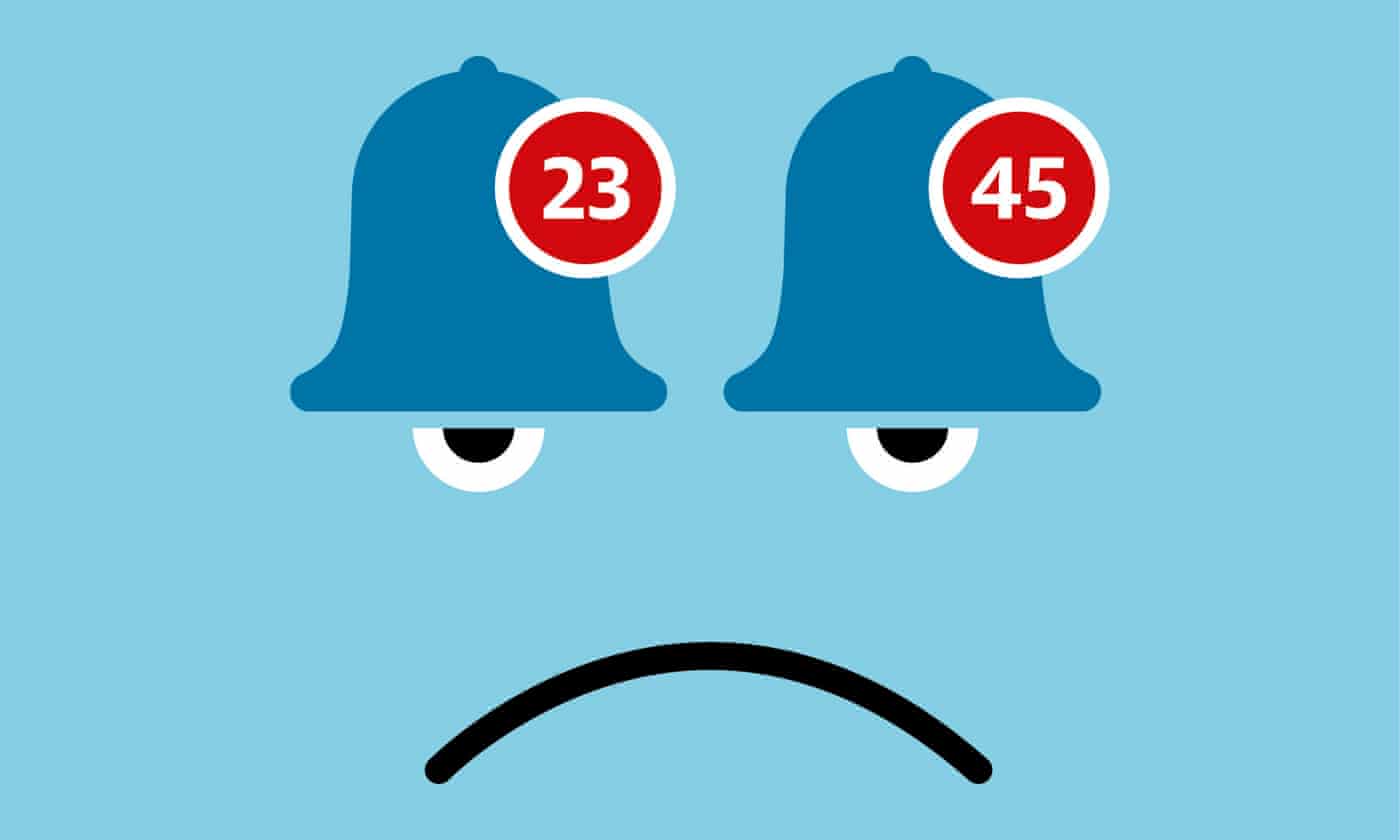Intro: Annoying notifications
Distraction disaster! Notifications are ruining our concentration – here’s how to escape them
Whether socialising with friends or completing a difficult task, a ping on your phone can destroy the moment. It is time to address the constant stream of interruptions
". . .With increasing chunks of life handled online – from banking to entertainment to health – we have spiralled into notifications hell. On a bad day, life can feel like one long stressy game of Space Invaders. You open a device to check the weather, only to be greeted with a barrage of invasive alerts – some interesting (you got paid!) and some irritating (a pointless post on your neighbourhood WhatsApp group, a software update …) and before you know it, you’ve forgotten all about the weather. . .
[...] Scrolling down YouTube’s endless list of video explainers for opting out of notifications provides a window into this distracting reality: “Turn off annoying Outlook alerts,” “How to disable notifications in Google Chrome browser,” “How to TURN OFF ALL notifications on ANY iPhone.” PlayStation, Microsoft Teams, Facebook, Garmin smartwatch, the list goes on and on, because this is a constantly evolving situation and we can’t keep up.
. . .Being notified of a text from a friend, which you don’t need to read straight away, can be surprisingly draining. “You’re like: ‘OK, what does my friend want?’ There’s uncertainty, and we don’t deal with uncertainty very well.” Ignoring it, says Leroy, is “cognitively difficult”.
Self-control is required, and when it’s needed several times an hour, your brain will become exhausted. If your current task feels taxing, you’ll soon take a break to scratch some of your notifications itches. But even if you’re really keen to continue working, says Leroy, “when we use the resource of self-control, it depletes over time, and it’s going to be harder to ignore those notifications.”
. . .Checking a notification quickly, so that it can be batted away and we can return to our work, might therefore seem the best option, but the mental cost is significant. “As the brain transitions between context,” says Leroy, “our train of thought has been broken. And when we go back to what we’re doing, the brain has a hard time remembering exactly where we were. Getting that momentum back, reaching the same level of concentration – that takes time. Even after a few seconds’ attention switch, coming back can be very costly.”
. . .Like obedient puppies, tech has conditioned humans to react to notifications. Most of these digital nags are boring things, but because we occasionally get a high-reward one – a message from a new love, or an update on an exciting delivery, “we get this Pavlovian response,” says Cox, “where we end up thinking: ‘Oh, maybe this is an exciting one,’ and we want to respond to it straight away.”
READ MORE - AND THERE'S LOTS MORE!


No comments:
Post a Comment